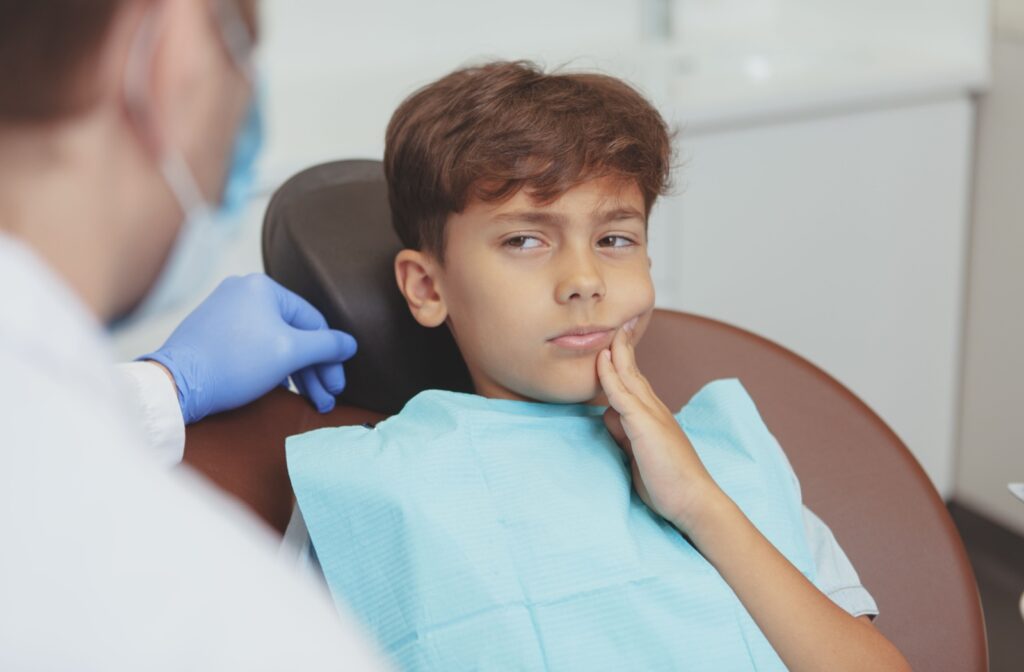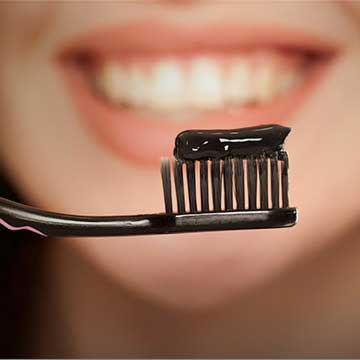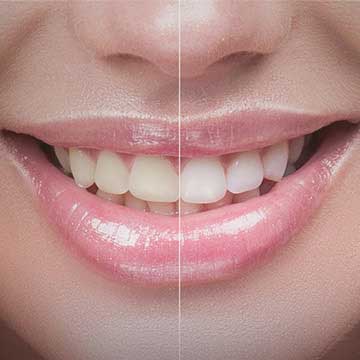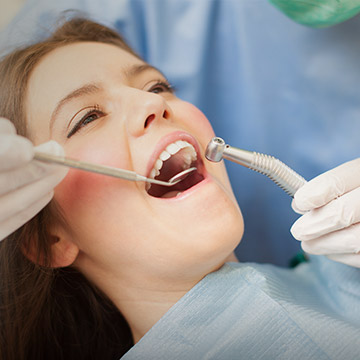Bad breath in children can be worrying for parents. While it might be easy to dismiss bad breath as just a case of “morning breath,” persistent bad breath can indicate dental issues like cavities.
This guide is designed to help you understand how cavities might contribute to you or your child’s bad breath and what steps you can take to preserve you and your family’s dental health.
What Are Cavities?
Cavities are permanently damaged areas in the hard surface of your teeth that develop into tiny openings or holes. Cavities are among the world’s most common health problems and can occur at any age, but they’re particularly prevalent in children.
Cavity formation begins with the build-up of dental plaque, a sticky substance that forms on teeth. When sugars from foods and drinks are consumed, bacteria in plaque produce acids that attack tooth enamel. Over time, these acids can create cavities. Cavities can lead to pain, infection, and even tooth loss without proper intervention.
How Cavities Can Cause Bad Breath
When we think about cavities, we often focus on the discomfort involved or the need for dental treatment. However, one of the lesser-known consequences of untreated cavities is bad breath.
Cavity-related bad breath occurs when decay within the tooth provides a perfect environment for bacteria to thrive. These bacteria release volatile sulphur compounds (VSCs), which are responsible for the foul smell commonly associated with bad breath.
This can be particularly distressing for children, as they may not understand the cause or know how to communicate their discomfort. Parents should look for bad breath that persists despite regular brushing and flossing, as this could indicate underlying dental issues like cavities.
What Does Cavity Breath Smell Like?
Cavity breath is often described as having a sweet or sour odour, distinct from typical breath odours. This is due to decaying organic material in and around the cavity and the production of VSCs by bacteria. Some have described the odour as similar to rotten eggs or as having a sour milk smell. It’s often quite noticeable.
A dental check-up is advisable if you suspect that your or your child’s bad breath may be related to cavities.
Managing & Preventing Bad Breath From Cavities
The good news is that bad breath caused by cavities is manageable and, more importantly, preventable. Here are some practical steps parents can take:
- Schedule Regular Dental Visits. Ensure that your child sees a dentist regularly. Routine check-ups can catch cavities early before they lead to significant decay and bad breath. Dentists can also provide professional cleanings to remove plaque build-up that contributes to cavities.
- Encourage Good Oral Hygiene. Teach your child the importance of brushing twice daily with fluoride toothpaste and flossing daily. Proper oral hygiene is the first defence against cavities and the bad breath they may cause.
- Limit Sugary Snacks and Drinks. Sugars provide food for the bacteria that cause cavities. Limiting your child’s sugary snacks and drinks intake, especially between meals, can reduce the risk of cavity formation and associated bad breath.
- Provide a Balanced Diet. A diet rich in fruits, vegetables, and whole grains supports overall health, including oral health. Foods high in calcium and phosphorus, like dairy products, can help strengthen tooth enamel.
Does Filling Cavities Fix Bad Breath?
Fillings restore the tooth’s structure and seal off areas where bacteria can colonize and produce odorous compounds. Once a cavity is filled, the source of the bad breath is removed, often leading to a noticeable improvement in breath quality.
However, it’s essential to continue practicing good oral hygiene and maintaining regular dental visits to prevent new cavities from forming. Remember, fillings don’t prevent future cavities—they just address existing ones.

Does a Cavity Go Away?
Early-stage cavities, known as incipient lesions, can sometimes be halted or reversed with improved oral hygiene and fluoride treatments. However, once the enamel is breached and a hole forms, a filling is necessary to restore the tooth’s integrity. Ignoring cavities can lead to more severe dental issues, including tooth abscesses and systemic health problems.
Other Possible Causes of Chronic Bad Breath
While cavities are a common cause of bad breath, other factors can also contribute:
- Poor Oral Hygiene. Insufficient brushing and flossing can leave food particles in the mouth, leading to plaque build-up and bad breath. Be sure to clean your tongue!
- Periodontal disease (gum disease): bacteria that cause periodontal disease can contribute to bad breath.
- Dry Mouth. A lack of saliva can prevent the mouth’s natural cleansing, allowing odour-causing bacteria to thrive. Encourage your child to stay hydrated and consider consulting a dentist if you suspect dry mouth.
- Dietary Habits. Certain foods, like onions and garlic, can contribute to bad breath. While these odours are usually temporary, they can linger with inadequate dental care.
Other Signs You May Have a Cavity
In addition to bad breath, other signs may indicate the presence of a cavity:
- Tooth Sensitivity. Sensitivity to hot, cold, or sweet foods may suggest enamel damage and cavity formation. If your child frequently complains about discomfort when consuming certain foods, it’s time to consult a dentist.
- Visible Holes or Discolouration. Dark spots or holes on the surface of the teeth can be a clear indicator of cavities. Regularly inspect your child’s teeth for any visible changes.
- Toothache. Persistent tooth pain can be a sign of advanced decay. If your child experiences ongoing pain, seek dental care promptly to prevent further complications.
Clearing Up Bad Breath For Good
Understanding the link between cavities and lousy breath empowers parents to take proactive steps in maintaining their child’s oral health. Parents can ensure their child’s smile remains bright and healthy by fostering good hygiene habits, scheduling regular dental visits, and staying informed about potential issues.Otara Dental understands that addressing cavities early improves breath and prevents more serious dental problems. Contact us today to start building a positive association with oral health for your children and help keep the bad breath at bay.









